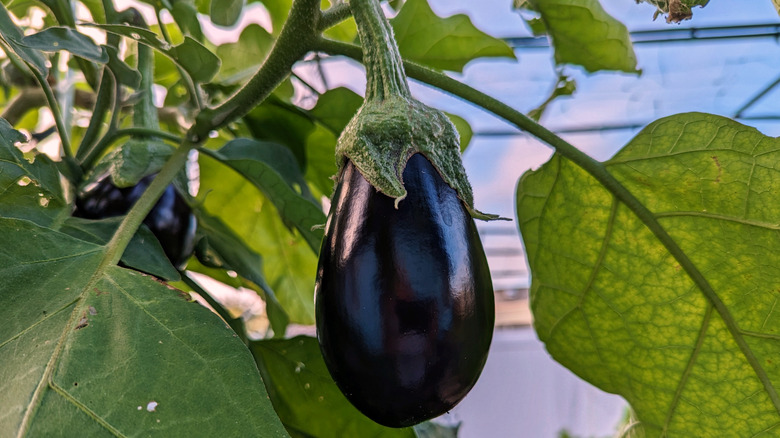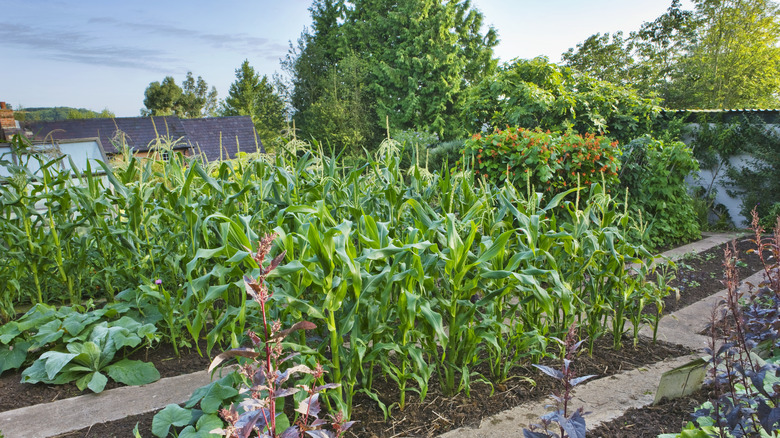The Tasty Vegetable That You'll Want To Keep Far Away From Corn In The Garden
Eggplant and corn are two popular crops for home gardeners, but planting them in close proximity can create a challenging environment for both. Both plants have significant demands when it comes to nutrients, water, and space, which can lead to increased competition if they're grown side by side. Corn is known for its extensive root system and tall growth, which can overshadow smaller plants and absorb a large portion of the available resources. Similarly, eggplants have deep roots and require a steady supply of nutrients to thrive. When planted together, the competition for these essential resources can hinder the growth of both crops.
Corn needs substantial amounts of nitrogen to fuel its rapid growth and tall stature. Eggplants also require a steady supply of nitrogen. This can lead to nutrient deficiencies for both crops if they are planted too close together, as each will struggle to obtain the resources it needs. Additionally, corn's tall growth can create shading issues, which may affect the amount of sunlight reaching the eggplants.
The impact of planting distance on nutrient absorption for corn and eggplant
The distance between corn and eggplant in your garden significantly impacts their ability to absorb nutrients. Corn, with its fast-growing nature, requires a consistent supply of nitrogen and phosphorus. If planted near eggplants, which also need these nutrients but at different rates, the competition for these resources becomes intense. The result is that both crops might not receive the optimal amounts they need, leading to poor growth and reduced yields.
Furthermore, the tall stalks of corn can cast a significant shadow over eggplants, reducing the amount of sunlight that reaches them. While this competition is detrimental, it's not just about nutrient and space requirements. The issue of competition extends to other aspects of gardening, such as pest management and overall plant health. For instance, the presence of hornworms can be particularly damaging to eggplants, and managing these pests becomes more challenging when the plants are stressed. Similarly, planting corn too close to other crops, like tomatoes, can increase the risk of disease transmission and pest infestations.
Managing spacing and garden layout for optimal growth of your veggies
Proper garden layout and plant spacing are crucial for optimizing the growth of both eggplants and corn. To avoid the issues associated with planting these two crops together, it's essential to consider their individual requirements and how they interact in a shared space. Corn's large size and nutrient needs mean that it should be planted in areas where it will not overshadow or compete with other plants. Ideally, corn should be placed in a separate area from more delicate crops like eggplants.
In addition to spacing, the surrounding environment plays a role in plant health. Grass and other ground cover plants can also compete with garden crops for nutrients and water. Long grass, for example, can absorb a significant amount of soil moisture and nutrients, further exacerbating competition in the garden. Keeping grass trimmed and managing ground cover can help ensure that your primary crops, including corn and eggplants, receive adequate resources.
Moreover, crop rotation and companion planting strategies can help manage the challenges posed by planting eggplants and corn near each other. Implementing these practices not only enhances plant health but also improves overall garden productivity. Effective garden management, therefore, involves careful planning and consideration of how each plant species interacts with others in the garden space.


